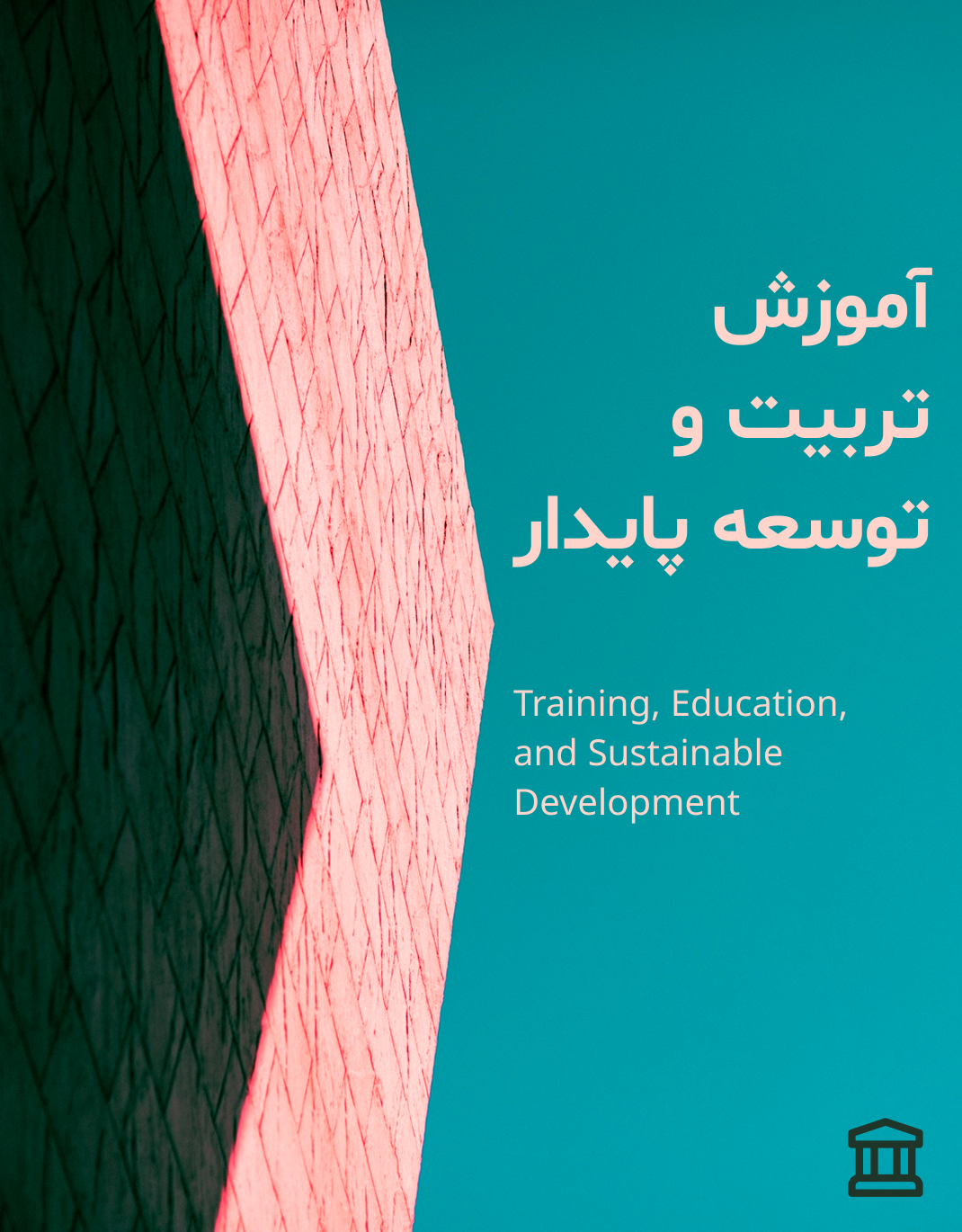ارائه مدلی برای توسعه شایستگیهای پژوهشی اعضای هیئت علمی دانشگاههای عراق
کلمات کلیدی:
شایستگیهای پژوهشی, اعضای هیئت علمی, توسعه حرفهای, نظریه دادهبنیاد, مدلسازی معادلات ساختاریچکیده
هدف این پژوهش طراحی و ارائه مدلی بومی برای توسعه شایستگیهای پژوهشی اعضای هیئت علمی دانشگاههای عراق بود. پژوهش حاضر با رویکرد ترکیبی اکتشافی متوالی انجام شد. در مرحله کیفی، از نظریه دادهبنیاد استراوس و کوربین و مصاحبههای نیمهساختاریافته با ۱۸ نفر از خبرگان و مدیران دانشگاهی استفاده شد. پس از تحلیل کدها و مقولات، مدل پارادایمی شامل شش بعد اصلی شامل عوامل علّی، پدیده محوری، شرایط زمینهای، شرایط مداخلهگر، راهبردها و پیامدها طراحی شد. در مرحله کمی، دادهها از ۳۳۳ نفر از اعضای هیئت علمی دانشگاههای عراق گردآوری و با روش مدلسازی معادلات ساختاری (SEM) تحلیل گردید تا برازش مدل تأیید شود. نتایج تحلیل مسیر نشان داد عوامل علّی شامل الزامات حرفهای و عوامل انگیزشی با ضریب مسیر 0.57، و شرایط زمینهای شامل بستر علمی-آموزشی و فرهنگی-اجتماعی با ضریب مسیر 0.42، تأثیر مثبت و معناداری بر توسعه شایستگیهای پژوهشی دارند. شرایط مداخلهگر شامل موانع سازمانی و فردی با ضریب مسیر منفی 0.38- تأثیر بازدارنده دارند. همچنین، شایستگیهای پژوهشی با ضریب مسیر 0.63 بر راهبردهای توسعه و راهبردها با ضریب مسیر 0.71 بر پیامدها تأثیر مثبت و معناداری داشتند. شاخصهای برازش مدل نیز در سطح مطلوب گزارش شد (χ²/df = 2.57، RMSEA = 0.069، CFI = 0.93). نتایج پژوهش نشان داد توسعه شایستگیهای پژوهشی اعضای هیئت علمی نیازمند توجه همزمان به عوامل فردی، زمینهای و سازمانی است. مدل ارائهشده میتواند بهعنوان چارچوبی بومی و کاربردی برای برنامهریزی، سیاستگذاری و ارتقای ظرفیت پژوهشی در نظام آموزش عالی عراق مورد استفاده قرار گیرد.
دانلودها
مراجع
Abdulhussein, H. M. (2019). Motives for the migration of Iraqi scientific competencies and their implications for Iraqi society. Opción: Revista de Ciencias Humanas y Sociales(20), 782-805. https://produccioncientificaluz.org/index.php/opcion/article/view/31542
Al-Azawei, A., Parslow, P., & Lundqvist, K. (2016). Barriers and opportunities of e-learning implementation in Iraq: A case of public universities. The International Review of Research in Open and Distributed Learning, 17(5). https://doi.org/10.19173/irrodl.v17i5.2501
Al-Mashhadani, D. T. I., Makarova, E. A., & Makarova, E. L. (2024). Problems and Prospects of Higher Education Management in Iraq. Инновационная наука: Психология, Педагогика, Дефектология, 7(5), 75-82. https://doi.org/10.23947/2658-7165-2024-7-5-75-82
Angeloska-Galevska, N. (2023). Developing research and academic competencies of students through three cycles of studies. The Eurasia Proceedings of Educational and Social Sciences, 33, 63-69. https://doi.org/10.55549/epess.1413312
Beaulieu, M., Rebolledo, C., & Lissillour, R. (2024). Collaborative research competencies in supply chain management: the role of boundary spanning and reflexivity. The International Journal of Logistics Management, 35(2), 305-331. https://doi.org/10.1108/IJLM-07-2022-0277
Böttcher-Oschmann, F., Groß Ophoff, J., & Thiel, F. (2021). Preparing teacher training students for evidence-based practice promoting students' research competencies in research-learning projects. In Frontiers in Education (pp. 642107). https://doi.org/10.3389/feduc.2021.642107
Cantwell, B., & Mathies, C. F. (2012). Expanding research capacity at United States universities: A study of academic research and development investment from 1990-2005. Higher Education Quarterly, 66(3), 308-330. https://doi.org/10.1111/j.1468-2273.2012.00522.x
Castillo-Martínez, I. M., & Ramírez-Montoya, M. S. (2021). Research competencies to develop academic reading and writing: A systematic literature review. In Frontiers in Education (pp. 576961). https://doi.org/10.3389/feduc.2020.576961
Charumbira, M. Y., Berner, K., & Louw, Q. A. (2021). Research competencies for undergraduate rehabilitation students: A scoping review. African Journal of Health Professions Education, 13(1), 52-58. https://doi.org/10.7196/AJHPE.2021.v13i1.1229
Doğan, M., & Arslan, H. (2024). Is the Productivity of Faculty Members Sustainable? The Perspective of Faculty Members. Trends in Higher Education, 3(2), 356-372. https://doi.org/10.3390/higheredu3020022
Elen, J., Lindblom‐Ylänne, S., & Clement, M. (2007). Faculty development in research‐intensive universities: The role of academics' conceptions on the relationship between research and teaching. International Journal for Academic Development, 12(2), 123-139. https://doi.org/10.1080/13601440701604948
Grande, R. A. N., Berdida, D. J. E., Villagracia, H. N., Ablao, J. N., & Garcia, P. R. B. (2021). Assessment of nursing students' research competencies with competency‐based education. The Journal of Competency‐Based Education, 6(4), 211-221. https://doi.org/10.1002/cbe2.1260
Hejazi, E., Naraghi Sani, F., Naghsh, Z., & Shamoradi, Z. (2020). Research Related to the Competencies of Faculty Members in Iranian Universities (A Systematic Review of Models, Challenges, and Solutions). Rahyaft, 30(2), 63-81. https://rahyaft.nrisp.ac.ir/article_13806.html?lang=en
Javdani, M., Heidari, Z., & Anarinejad, A. (2020). Designing and Validating a Model of Professional Competencies for Faculty Members of Farhangian University. A New Approach in Educational Management, 11(44), 297-322.
Koshmaganbetova, G. K., Kurmangaliyeva, S. S., Kashkinbayeva, A. R., Kurmangaliyev, K. B., & Alekenova, N. U. (2020). Research competencies of medical university teachers: Evaluation, perception, and perspective. Open Access Macedonian Journal of Medical Sciences, 8(E), 181-187. https://doi.org/10.3889/oamjms.2020.3954
Mahmud, S. F. (2013). The higher education in Iraq challenges and recommendations. Journal of Advanced Social Research, 3(9), 255-264. https://doi.org/10.1080/21568235.2013.816469
Reguant, M., Martínez-Olmo, F., & Contreras-Higuera, W. (2018). Supervisors' perceptions of research competencies in the final-year project. Educational Research, 60(1), 113-129. https://doi.org/10.1080/00131881.2018.1423891
Salimi, G., Mohammadi, M., & Nassar, Z. (2017). An Analysis of Faculty Members' Experiences Regarding Competencies and Dynamics of Teaching and Research in the Process of Internationalization of Higher Education: A Qualitative Study. Teaching Research, 5(2), 109-133. https://trj.uok.ac.ir/article_50665.html
Shauli, S., Heiman, T., & Olenik‐Shemesh, D. (2023). Decision‐making modes regarding the inclusive dilemmas of students with educational challenges in mainstream classrooms. Journal of Research in Special Educational Needs, 23(3), 199-212. https://doi.org/10.1111/1471-3802.12591
Syahrial, S., Kurniawan, D. A., Asrial, A., Sabil, H., Maryani, S., & Rini, E. F. S. (2022). Professional Teachers: Study of ICT Capabilities and Research Competencies in Urban and Rural? Cypriot Journal of Educational Sciences, 17(7), 2247-2261. https://doi.org/10.18844/cjes.v17i7.7590
Winfield, T. P. (2022). Vulnerable research: Competencies for trauma and justice-informed ethnography. Journal of Contemporary Ethnography, 51(2), 135-170. https://doi.org/10.1177/08912416211017254
Zarei, A., Javadipour, M., Abili, K., Salehi, K., & Hakimzadeh, R. (2022). Identifying the Dimensions and Obstacles to the Self-Development of Faculty Competencies for Supervising Student Theses and Dissertations: A Documentary Study. Jundishapur Education Development Journal, 13(2), 383-405. https://edj.ajums.ac.ir/article_157931_en.html
دانلود
چاپ شده
ارسال
بازنگری
پذیرش
شماره
نوع مقاله
مجوز
حق نشر 1404 لوی جبیر حسین الجبوری (نویسنده); نیما شهیدی; قصی شهاب احمد, جهانبخش رحمانی (نویسنده)

این پروژه تحت مجوز بین المللی Creative Commons Attribution-NonCommercial 4.0 می باشد.


